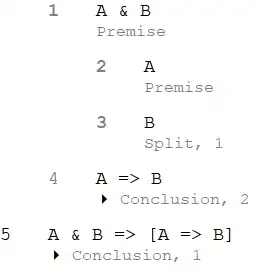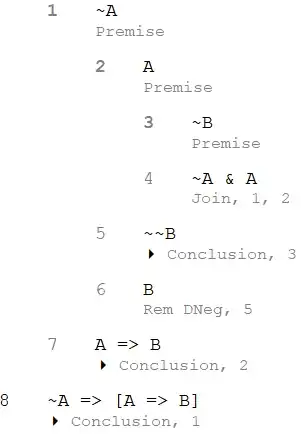This is the way I understand it (I make no guarantee this is considered a correct interpretation).
the truth value of an implies statement is basically 'innocent until proven guilty', or 'my statement is true so long as the proposition values don't disprove it'.
So with an example, propositions P and Q, with the statement P implies Q. Lets say proposition P is 'is a man' and proposition Q is 'lives in japan', so our implication statement is basically saying 'all men live in japan'.
The truth table:

is basically saying, for any example where P and Q are true, we haven't disproved our statement that P -> Q, and for any example where P is false we haven't disproved our statement, only if we have an example of P being true and Q being false is our statement shown to be false.
So imagine there are only 4 humans in existence, we look at each of them and categorise them in our truth table. By doing this we can work out if our statement that P -> Q is true. We find 2 of the people are men, and that they do live in Japan, OK good, our statement still holds true, the 3rd person is a woman, we don't care if she lives in Japan or not because in either case our statement about men is still holding true.
A woman living in or outside japan has no bearing on the truth of our statement about men living in japan.
The 4th person then will decide if our statement is true or not, if the 4th person is a man living in japan, or a woman, then is it logically true to say that being a man implies that you live in japan.
Why is this useful? well the truth table itself doesn't help us prove the truth of our statement by itself, what it does is clearly set out what conditions are relevant to the truth of our statement - i.e. that we don't care about women, and that only a man not living in japan will falsify our statement.
Of course, you could make a statement like 'all green men live on mars'. This is a true statement because we cannot verify who lives on mars, and we don't have any examples of green men. But this is whats called a "vacuous truth", it has no bearing on reality for us because the propositions are intangible.


